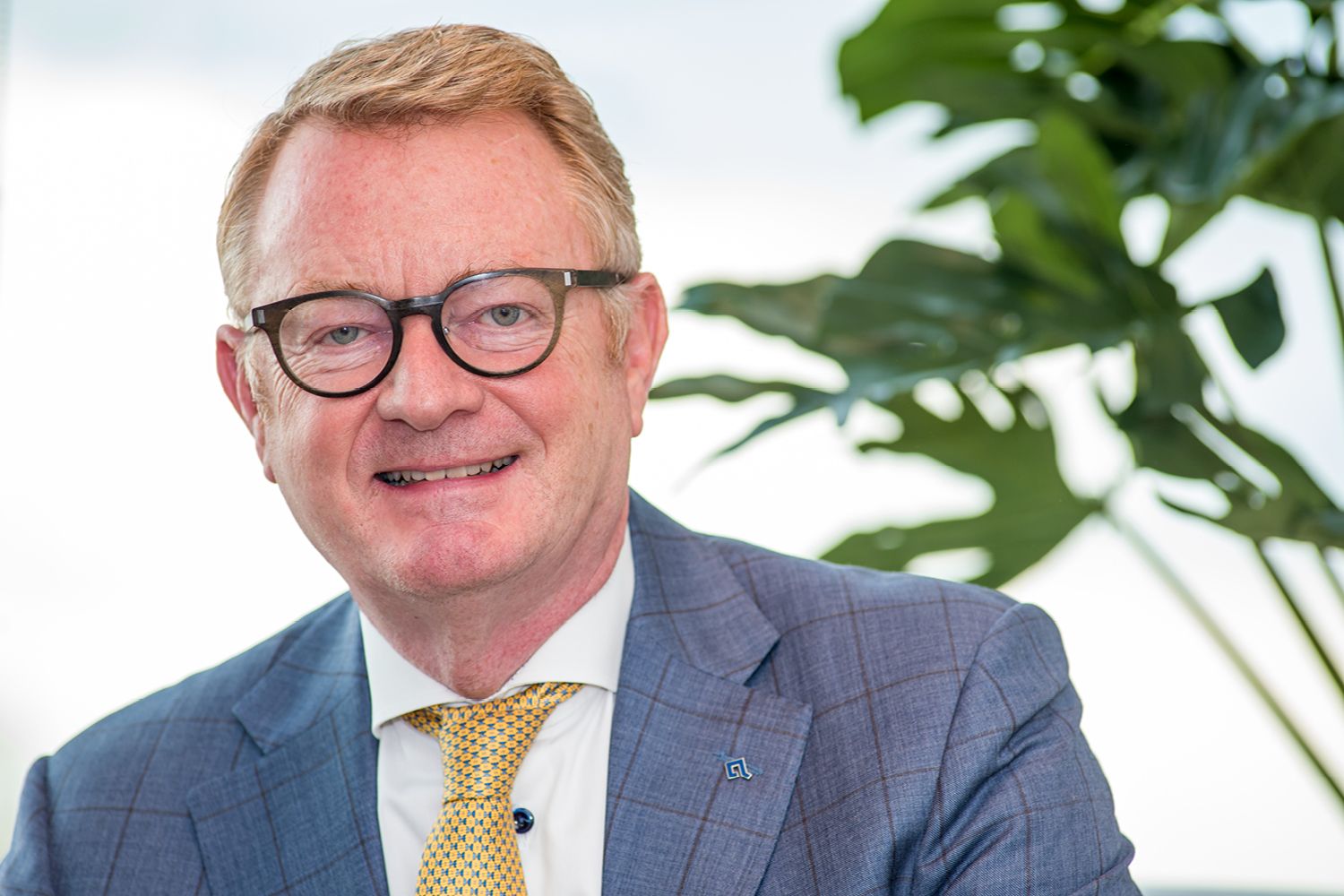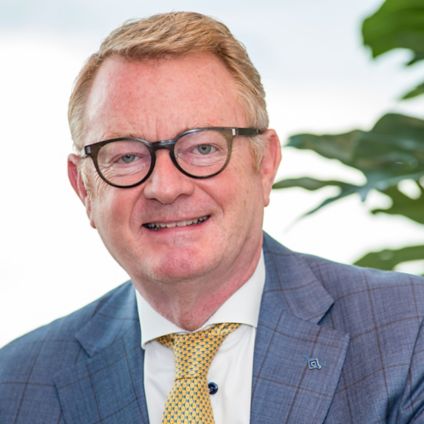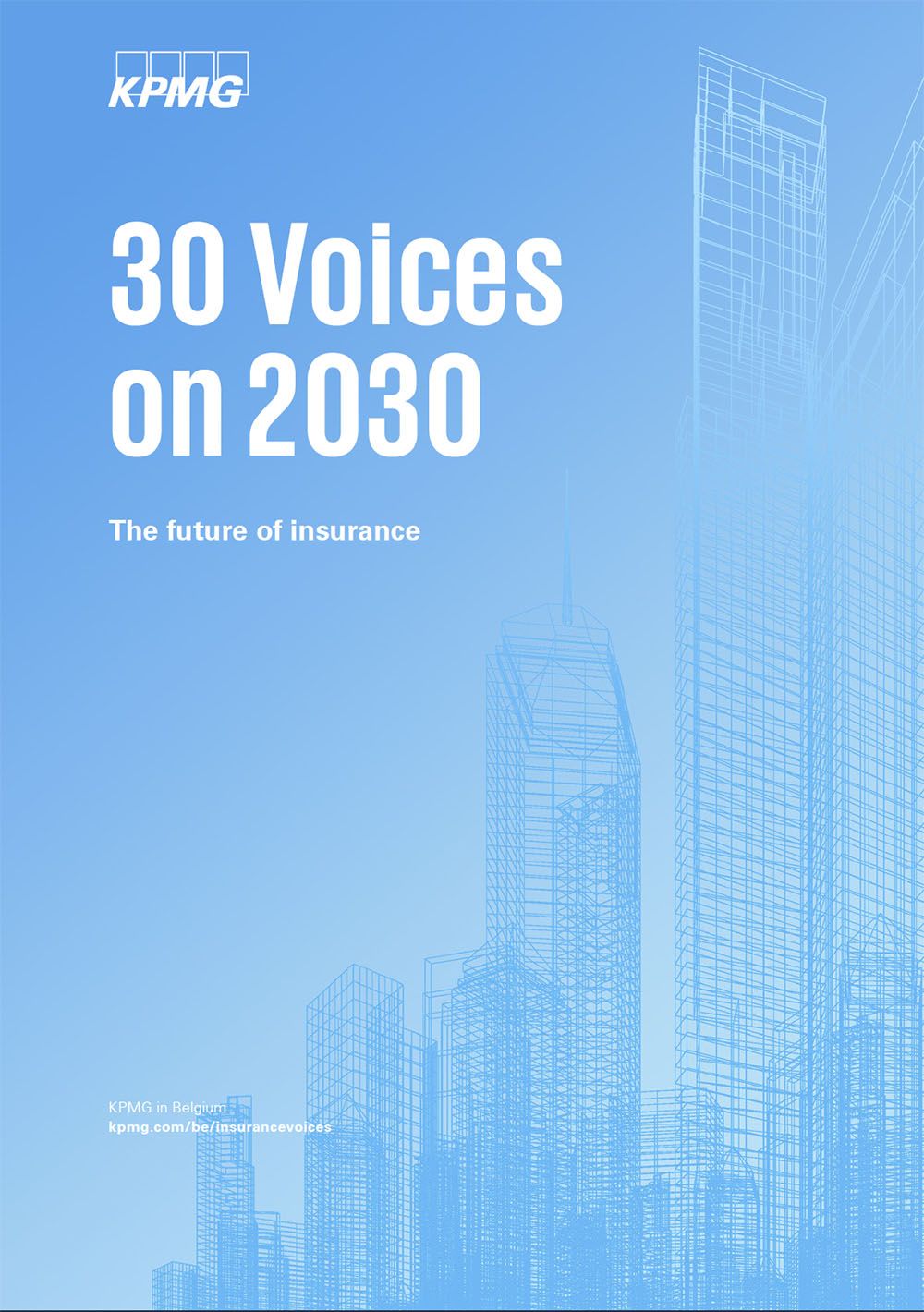The consequences of the energy crisis. The war in Ukraine. The COVID-19 pandemic: they were concrete illustrations of the world we lived in over the past decade, which we so often referred to as a VUCA world. What is certain is that, even in 2030, we still have to keep adapting to major changes and ever-new challenges. And as Darwin said: the winners of tomorrow will be those who adapt best to the changing environment. This also applies to insurers like Baloise. But how have we and our environment changed? Henk Janssen provides an answer.
Looking at the number of active insurance companies I can tell you that there have not been many new entrants in the market, primarily because of the increasing regulations you have to comply with. On the contrary, over the past few years we have seen a wave of consolidation in the market. We saw, and still see, this evolution even more strongly among insurance brokers, most of whom Baloise works with. This consolidation resulted in the creation of large brokerage groups.

Henk Janssen
CEO at Baloise Insurance
One of the driving forces behind this consolidation was the ambition of these brokers to accelerate their digitalization, with a special focus on the interaction with the end consumer. Traditional insurers, given their old legacy systems, were often technological laggards, which put them at risk of losing these prized clients.
As a result, insurance companies were faced with the prospect of becoming mere risk carriers without any customer contact. This can work as a business model, but only if you are a master at implementing it properly, otherwise you easily become interchangeable.
This meant that Baloise had to make an existential choice: do we want to position ourselves mainly as a risk carrier focusing on those large broker groups? Or do we only offer insurance products through brokers that also allow us to have specific interactions with customers? Or, depending on the segment, do we do both? Before I reveal what we chose, let me first make something clear.
The human touch remains incredibly important
Over the past decade, I didn’t believe the insurance world would become completely digital, and I still don’t believe it today, in 2030. At Baloise, we've stated for a long time: “digital when possible, always human.” Even the strongest believers, who confidently claimed that everything would digitalize, are coming around to our philosophy. Because the human touch remains incredibly important.
Today brokerage is still successful in Belgium, something we have strongly had faith in for more than a decade. One of the main reasons for this is linked to the character of the Belgian consumer. Briefly: lots of Belgians are very attached to their home region and live (and die) within a 20 kilometer radius of where they were born. They take out insurance policies with a broker (for example, a former school friend), whose parents were also their parents' broker.
I didn’t see that model change during the twenties. The world was certainly not becoming more structured. Quite the opposite, chaos was increasing. People want to belong somewhere. And people feel most comfortable with a company represented by a familiar face. That could be the local real estate agent and/or Baloise. That emotional connection remains crucial – even today, even for insurance.
Market share of the broker distribution may have been reduced a bit, as insurance is now being sold in other ways, such as embedded insurance. But the broker is still our face to the market. So the question is:
How do we make sure that - today in 2030 - we can retain our brand in the market?
We do this by mainly choosing the second option i.e. offering insurance through a broker who also allows us, as the insurer, to maintain customer contact. Once that contact has been established we must offer the right things at the right time and create an emotional connection with the end-customer.
To get that connection, you have to know your end-customer. To do that, data can help tremendously. Fortunately, in recent years we have made important steps forward in terms of technology and data use. Today, regulations are also allowing more, without emulating Chinese state practices, where citizens are given a social score.
Thanks to technology, we can now turn over a lot of technical insurance work to AI. Above all, what we must do, as insurers and as brokers, is communicate and provide service. Because even today, in 2030, the human interface remains important. If your house has burned down, if you want to save for your retirement, among other things, you want to talk to someone about it.
And that's where there has been huge improvement in recent years. Baloise has seized this opportunity by offering more. Not just paying out life insurance policies, for example, but also offering grief counseling. We didn't do it in the past. Nor were we expected to. But today we do. Against that evolutionary background we are also fully committed to ESG and transparency about our fees – also a must.
That's how we became a loved brand, with the broker wanting to sell our products and the customer wanting to buy them. Because yes, people still believe in solidarity today. Especially with those who are not responsible for events such as natural catastrophes. Solidarity has not disappeared. And neither have we insurers and brokers. More than ever, we are connected to each other and to the customer.
If your house is burning, you want to talk about it today, too.

About the interviewee
Henk Janssen is a seasoned veteran of the insurance world. He worked for most of his career in the Netherlands, including at OHRA, Delta Lloyd and the Dutch Association of Insurers. Since 2004, Henk has lived and worked in Belgium. In 2016, he took over as CEO at Baloise Insurance, previously known as Mercator Verzekeringen. Henk is a Dutchman with unique insights into both insurance and Belgians.

Voices on 2030: The Future of Insurance
Discover more perspectives from the industry’s most inspirational and imaginative leaders.
Download full report ⤓
